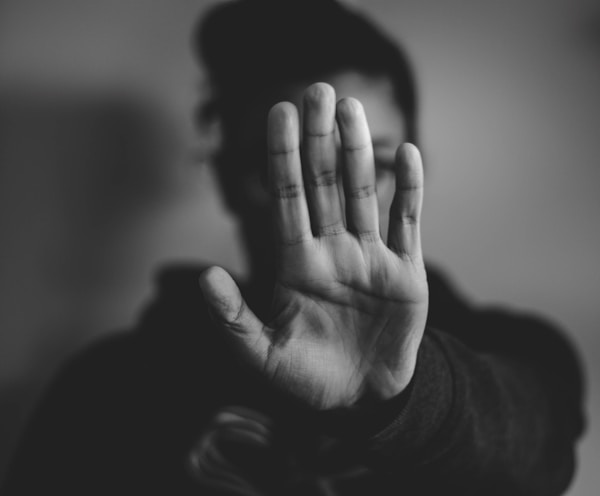LEGAL ASPECTS
Rape during an armed conflict is a war crime. Reporting the case is necessary to hold the perpetrator responsible.

Pursuant the General Recommendation No. 35 (2017) on gender-based violence against women, updating General Recommendation No. 19 (CEDAW/C/GC/35, p. 16) some forms of gender-based violence against women may constitute international crimes (such as rape, sexual slavery, enforced prostitution, forced pregnancy, enforced sterilisation, or any other form of sexual violence of comparable gravity, according to articles 7(1)(g), 8(2)(b)(xxii), and 8(2)(e)(vi) of the Rome Statute of the International Criminal Court).
Sexual violence is being used as a weapon of war in Ukraine. Survivors of these heinous crimes need all the support they can get, including professional and sensible legal aid and representation. Lawyers can play a crucial role in empowering survivors of sexual violence and help prevent them from being retraumatised in legal proceedings.
The following international documents establish legal and policy framework for state obligations to address sexual violence:
-
Convention on the Elimination of All forms of Discrimination Against Women (CEDAW) and General Recommendation No. 35 on gender-based violence against women, updating General Recommendation No. 19 adopted on 14 July 2017 (CEDAW/C/GC/35);
-
European Convention on Human Rights (ECHR);
-
Council of Europe Convention on preventing and combating violence against women and domestic violence (Istanbul Convention).
Ukraine is a state party to both CEDAW, the ECHR and the Istanbul Convention.

WHAT LEGAL RIGHTS DO SURVIVORS OF SEXUAL VIOLENCE HAVE?
-
Appropriate assistance to victims/survivors
“Appropriate protective and support services should be provided for victims.”[1]
“States parties should establish or support services for victims of family violence, rape, sex assault and other forms of gender-based violence, including refuges, specially trained health workers, rehabilitation and counselling”.[2]
-
Nondiscriminatory judicial procedures – respect integrity and dignity of victims
“States parties should ensure that laws against family violence and abuse, rape, sexual assault and other gender-based violence give adequate protection to all women, and respect their integrity and dignity.”
“Ensure that all legal procedures involving rape and other sexual offences are impartial and fair, and not affected by prejudices or stereotypical gender notions.”[3]
“Ensure that all legal proceedings, protective and support measures and services concerning victims/survivors respect and strengthen their autonomy.”[4]
-
Gender sensitive training for public officials
“Gender-sensitive training of judicial and law enforcement officers and other public officials is essential for the effective implementation of the Convention”.[5]
-
Special measures during the war
“Wars, armed conflicts and the occupation of territories often lead to increased prostitution, trafficking in women and sexual assault of women, which require specific protective and punitive measures.”[6]
The European Court of Human Rights has recognised that States Parties to the European Convention on Human Rights (ECHR) must ensure and uphold the respect for private life and personal integrity for victims of sexual violence in criminal proceedings. This includes:
-
No victim blaming and secondary victimisation of survivors of sexual violence in criminal law proceedings[7]
-
Ensure that victims of sexual violence do not suffer additional distress and psychological trauma due to shortcomings in the authorities’ approach throughout criminal proceedings[8]
[1] UN Committee on the Elimination of Discrimination Against Women, ‘CEDAW General Recommendation No. 19: Violence against women’ A/47/38 (29 July 1992) para 24(b).
[2] Ibid.
[3] UN Committee on the Elimination of Discrimination against Women, Communication No. 18/2008, Vertido v. the Philippines, CEDAW/C/46/D/18/2008 (22 September 2010)Para 8.9(b).
[4] UN Committee on the Elimination of Discrimination Against Women (CEDAW), ‘General Recommendation 35 on gender based violence against women, updating general recommendation No. 19’ CEDAW/C/GC/35 (14 July 2017) para 31(b).
[5] UN Committee on the Elimination of Discrimination Against Women, ‘CEDAW General Recommendation No. 19: Violence against women’ A/47/38 (29 July 1992) para 24(b).
[6] Ibid, para 16.
[7] J.L. v. Italy (Judgement) ECHR, Case No. 5176/16 (27 May 2021)
[8] M.C. v. Bulgaria (Judgement) ECHR, Case No. 39272/98 (4 December 2003).

